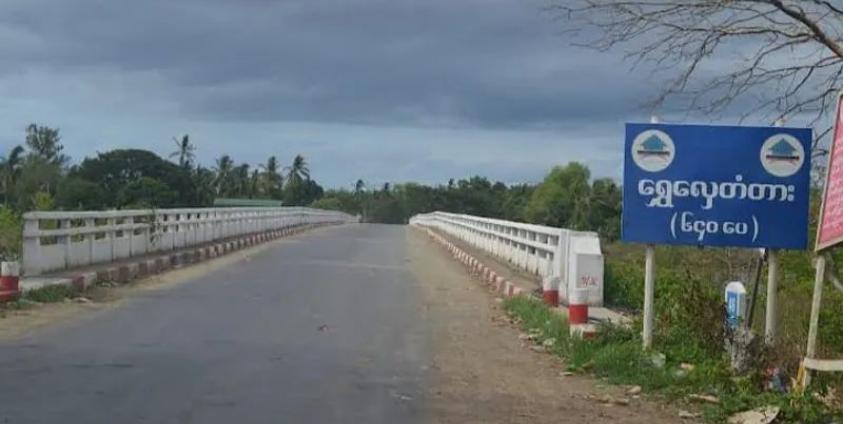Residents reported that during a clash near the Thahtaychaung hydroelectric project in Thandwe Township, Rakhine State, the Junta employed newly trained militia young villagers of Shwekyaungpyin, Mhyachaung, and Nanchaung, with some fleeing amidst the fighting. Heavy fighting between Junta troops and the Arakha Army (AA) is still raging across Rakhine State, encompassing Thandwe.
"Since before the clash, these militia trainees were seen patrolling the town in cars at night, dressed in green military uniforms without badges, and armed by Junta troops. Two days ago, about 10 of them were spotted fleeing from the side of the hydroelectric project where the fight occurred, drenched in water, buying shoes at a shop and hastily departing without uniforms, clearly running away from the conflict”, a local told Narinjara.
In the Shwehlay area of Thandwe, clashes between AA and the Junta escalated, it is claimed that over 50 Junta troops, including 2 officers from the 55th Infantry Battalion stationed in Ngapali, along with two newly trained young militiamen who were killed on the battlefield.
“The Junta soldiers were seen digging the soil using backhoes to bury their fallen comrades near the hydroelectric project, where it's believed two recently trained young men were among the deceased, yet the parents of these youths did not dare to speak out, likely due to fear”, a Thandwe resident remarked.
Currently, approximately 40 Junta troops are stationed near the Shwehlay Bridge, with explosives positioned around the area, leading to the closure of nearby shops and prompting civilians to evacuate to safer locations.
"The Junta has been shooting heavy artillery, but AA has not responded in two days.
The AA is currently concentrating on demining forest areas using trained dogs. Junta soldiers are positioned near the Shwehlay Bridge, which has been rigged with explosives. There are rumors they might destroy it if they have to retreat”, a local reported.
Shwehlay is situated along the Thandwe-Taungup highway. Fearing more fighting, residents from villages like Payit and Yaekaut, have been seeking temporary refuge in monasteries and with relatives in distant villages.







